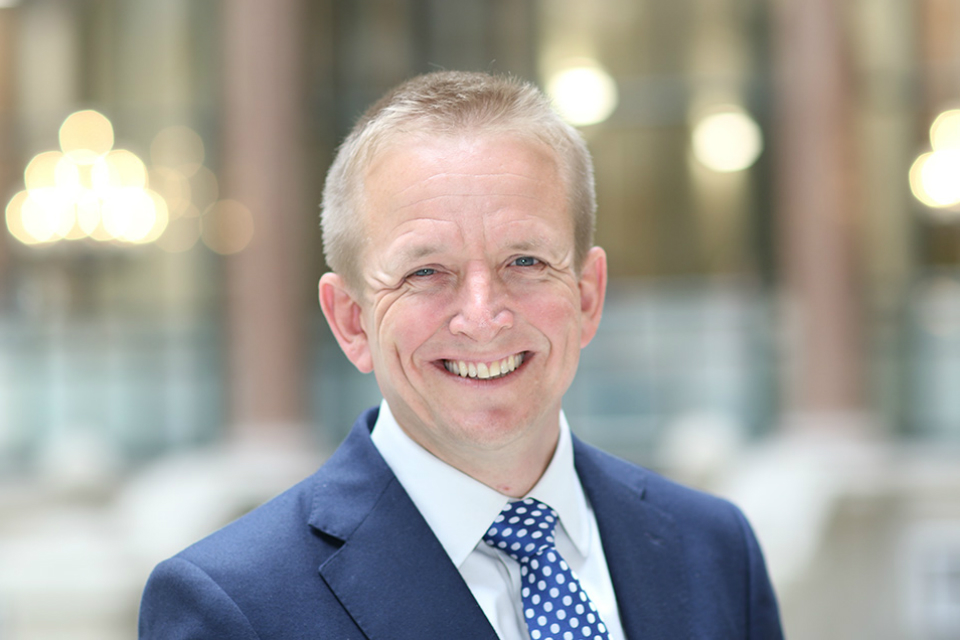Speech: British Ambassador to DRC marks International Anti-Corruption Day
The British Ambassador, John Murton, spoke at the opening of an event in Kinshasa to mark International Anti-Corruption Day.

I would like to welcome and to sincerely thank you all for coming here today, to attend this event, to mark the recent International Anti-corruption Day that took place on Sunday.
I would like to sincerely thank the DRC Private Sector Anti-corruption Initiative, led by Ms Marie-Chantal Kaninda, and Global Compact, represented by Mr Célestin Mukeba, Vice-president and Ms Nadine Longo, Secretary General, for their tremendous and valuable contribution in the organisation of this event.
I am delighted to see such a large number of distinguished people keenly interested in the anti-corruption agenda. I hope we will be able to work together to tackle this scourge.
As we all know, corruption is one of the main obstacles to sustainable economic, political, and social advancement, affecting developed and developing economies alike. As the UN Secretary General has highlighted in a recent meeting of the Security Council, the World Economic Forum estimates that the cost of corruption amounts to at least US$2.6 trillion ‒ or 5% of global GDP ‒ while evidence from the World Bank indicates that over US$ 1 trillion is paid in bribes each year.
As well as this huge overall cost, corruption:
- impedes the conduct of business
- leads to waste or to inefficient use of public resources
- excludes poor people from public services and perpetuates poverty
- corrodes public trust, undermines the rule of law, and ultimately breeds political dysfunction and social disunity
Since 2010, the UK has arguably done more than any country in the world to fight corruption. We have a strong legislative framework through the Bribery Act and now the Criminal Finances Act.
We are the first G20 country to establish a public register of domestic company beneficial ownership. And we are the first G7 country to undergo an IMF fiscal transparency evaluation. In 2017 the OECD review of the UK’s anti-bribery regime welcomed the UK’s “strong anti-corruption drive” concluding that the UK had made significant progress in fighting foreign bribery. Transparency International has stated that the UK is one of only four countries worldwide that actively enforces foreign bribery legislation. It also ranks us in the top ten least corrupt countries in the world.
In 2016 we hosted the world’s first leaders’ Anti-Corruption Summit a successful event that sought to galvanise a global response. In December 2017 we and the US co-hosted the first meeting of the Global Forum on Asset Recovery, focused on accelerating international asset recovery efforts. We continue to champion international action.
We are committed to continuing these efforts – in particular to ensuring that the UK’s financial sector, and those in our Overseas Territories and Crown Dependencies, tackle illicit finances.
While there are many effective measures in place the UK is not immune from the effects of corruption. Stories of corruption can undermine confidence in our institutions and our business reputation more widely. Meanwhile, corruption overseas threatens our security and makes it harder for UK companies to compete for business. To secure our future prosperity, we must do all that we can to make sure that Britain remains one of the safest and transparent places in the world to do business. Our security and prosperity are inextricably linked. As the UK prepares to leave the EU, we have an opportunity to leverage our reputation for integrity and transparency and strong corporate governance as we establish new trading relationships.
For Her Majesty’s government, promoting Britain as a trustworthy business partner ties in with our strategic objective to deliver increased prosperity. By providing practical information and advice, our Embassies abroad will be more able to support British companies overseas to protect and strengthen their brand reputation, enjoy more sustainable commercial success, and minimise the risk of prosecution.
The damaging influence of corruption cannot be stopped overnight. We recognise that tackling corruption requires collective international action by governments, business, and civil society.
Corruption takes many forms and is often deeply rooted.. Criminal activity is often strongly linked to corruption such as serious and organised crime, modern slavery and terrorism.
We are all here today to exchange ideas and learn how we can combine our efforts to help tackle the corruption that prevents countries, including the DRC from realising its full potential.
I hope we will come away from this event today with a deeper understanding of what actions we can all take to combat corruption in all its forms. Thank you.